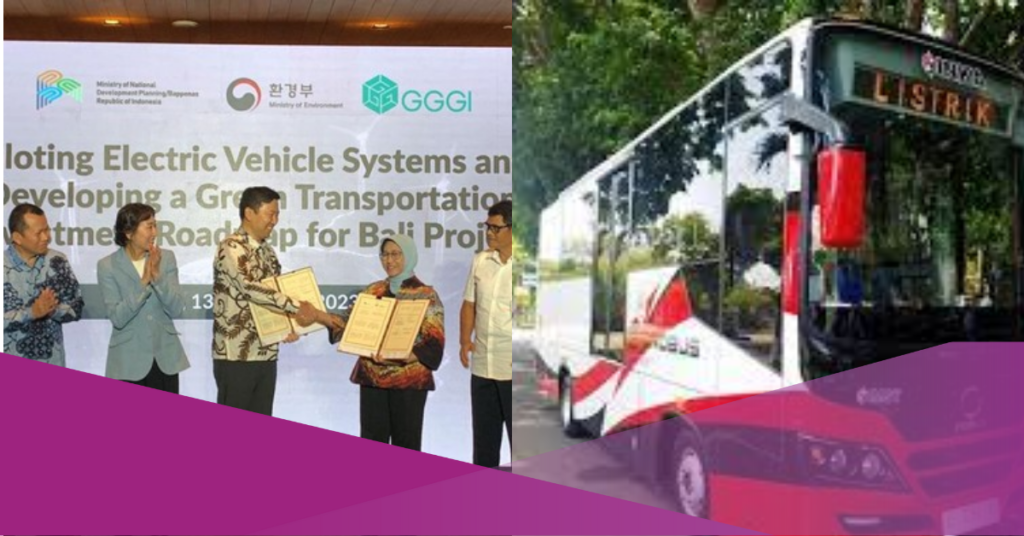On 13 December 2023, the governments of Indonesia and South Korea reached an agreement to establish electric bus services in Bali. The accord was sealed by Vivi Yulaswati, Deputy for Maritime Affairs and Natural Resources at the Ministry of National Development Planning(Bappenas), along with Jaeseung Lee, the Country Representative of the Global Green Growth Institute (GGGI) in Indonesia and Deputy Regional Director for Northeast Asia.
These electric buses are slated to operate across Denpasar, Badung, Gianyar, Klungkung, and Tabanan (Sarbagita) in Bali. This $8.8 million initiative is scheduled to commence in 2024 and will be implemented in phases until December 2027. Bali is selected as the testing ground for this electric bus service. Success in Bali could pave the way for the development of similar services in 20 other cities in Indonesia.

The GGGI initiative aligns with Indonesia’s pursuit of a “Golden Indonesia 2045” by steering the energy transition. The aim is to curtail greenhouse gas emissions by 32%-43% by 2030 and achieve Net Zero Emissions (NZE) by 2060 or even earlier.
GGGI is set to oversee the entire process, encompassing feasibility studies, execution, financing, and supply of electric buses in Bali. They’ll also set up necessary infrastructures like recharging stations. The initial focus will be on Tabanan (Sarbagita) due to its comprehensive facilities and classification as a metropolitan area.
The Bali Provincial Transportation Service Head, I Gede Wayan Samsi Gunarta, mentioned that the regional budget preparations have been ongoing since 2020. Before introducing the electric bus system, they aim to conduct various feasibility tests, beginning with the sustainable urban mobility plan for the primary roads. Following Tabanan, Klungkung emerges as the next targeted area.
Klungkung’s inclusion in the priority list is supported by the Bali provincial government, citing its potential to develop into a new economic hub within Bali.

































